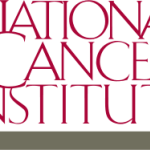- 産業: Government; Health care
- Number of terms: 6957
- Number of blossaries: 0
- Company Profile:
The National Cancer Institute (NCI) is part of the National Institutes of Health (NIH), which is one of 11 agencies that compose the Department of Health and Human Services (HHS). The NCI, established under the National Cancer Institute Act of 1937, is the Federal Government's principal agency for ...
A monoclonal antibody directed against the CD20 protein expressed on the surface of B-lymphocytes and radiolabeled with the radioisotope iodine I 131 with potential antineoplastic activity. Iodine I 131 tositumomab binds to and selectively delivers cyctotoxic radiation to CD20-expressing B-lymphocytes, thereby minimizing systemic radiotoxicity.
Industry:Pharmaceutical
A monoclonal antibody directed against the B-cell surface antigen CD40 with potential antineoplastic activity. Lucatumumab binds to and inhibits CD40, thereby inhibiting CD40 ligand-induced cell proliferation and triggering cell lysis via antibody-dependent cellular cytotoxicity (ADCC) in cells overexpressing CD40. CD40, an integral membrane protein found on the surface of B lymphocytes, is a member of the tumor necrosis factor receptor superfamily and is highly expressed in a number of B-cell malignancies.
Industry:Pharmaceutical
A monoclonal antibody directed against the antigen GC182 with potential immunostimulatory and antineoplastic activities. Upon administration, claudiximab specifically binds to GC128, which may stimulate the immune system to mount a cytotoxic T-lymphocyte (CTL) response against GC182-expressing tumor cells, resulting in decreased tumor cell proliferation. The CD20-like antigen GC182, a gastric differentiation protein, is often overexpressed on the cell surfaces of a variety of tumor cells, including gastric, pancreatic, esophageal cancer and non-small cell lung cancer (NSCLC) cells.
Industry:Pharmaceutical
A monoclonal antibody directed against nerve growth factor (NGF) with potential analgesic activity. Upon administration, fulranumab binds to NGF, preventing its binding to and activation of the NGF receptors TrkA and p75NTR. Inhibition of the NGF pathway may prevent the perception of pain and may induce analgesia. NGF, a neurotrophic factor that plays a key role in neuropathic and inflammatory-induced pain, promotes hyperalgesia and allodynia.
Industry:Pharmaceutical
A monoclonal antibody directed against human hepatocyte growth factor (HGF) with potential antineoplastic activity. Anti-HGF monoclonal antibody SCH900105 binds to the soluble ligand HGF, preventing the binding of HGF to its receptor c-Met and activation of the HGF/c-Met signaling pathway, which may result in cell death in c-Met-expressing tumor cells. C-Met, a receptor tyrosine kinase overexpressed or mutated in many tumor cell types, plays a key role in cancer cell growth, survival, angiogenesis, invasion, and metastasis.
Industry:Pharmaceutical
A monoclonal antibody directed against human glycosphingolipid GD2 with potential antineoplastic activity. Upon binding to the GD2 antigen, anti-GD2 monoclonal antibody hu14. 18K322A triggers a host immune response against GD2-expressing tumor cells, which may result in tumor cell death. GD2, an O-acetylated disialoganglioside with expression in normal tissues restricted primarily to the cerebellum and peripheral nerves, is commonly expressed at high levels on tumors of neuroectodermal origins such as melanomas and neuroblastomas.
Industry:Pharmaceutical
A monoclonal antibody directed against human CD20 with potential antineoplastic activity. Anti-CD20 monoclonal antibody TL011 specifically binds to the B cell-specific cell surface antigen CD20 antigen (MS4A1; membrane-spanning 4-domains, subfamily A, member 1), thereby potentially triggering an immune response against CD20-positive B cells, leading to B cell apoptosis. CD20 is a non-glycosylated cell surface phosphoprotein that is exclusively expressed on B cells during most stages of B cell development and is often overexpressed in B-cell malignancies.
Industry:Pharmaceutical
A monoclonal antibody directed against cytotoxic T-lymphocyte-associated antigen-4 (CTLA4), an antigen that is expressed on activated T-cells and exhibits affinity for B7 co-stimulatory molecules. By binding CTLA4, ipilimumab enhances T-cell activation and blocks B7-1 and B7-2 T-cell co-stimulatory pathways.
Industry:Pharmaceutical
A monoclonal antibody against RON (recepteur d'origine nantais; macrophage stimulating 1 receptor), with potential antineoplastic activity. Anti-RON monoclonal antibody IMC-RON8 binds to RON, thereby preventing binding of its ligand hepatocyte growth factor-like protein (HGFL or macrophage-stimulating protein (MSP)). This may prevent RON receptor-mediated signaling and may prevent cellular proliferation in tumor cells overexpressing RON. RON, a receptor tyrosine kinase, is overexpressed in a variety of epithelial cancer cell types and plays an important role in cellular proliferation, migration and invasion.
Industry:Pharmaceutical
A monoclonal antibody (MoAb) directed against the MN protein with potential antineoplastic activity. Upon administration of BAY79-4620, this MoAb may stimulate the immune system to mount a cytotoxic T-lymphocyte (CTL) response and an antibody mediated cellular cytotoxicity (ADCC) against MN-expressing tumor cells. MN, a transmembrane glycoprotein, is expressed in some human carcinomas and appears to be involved in cancer cell proliferation and transformation.
Industry:Pharmaceutical
